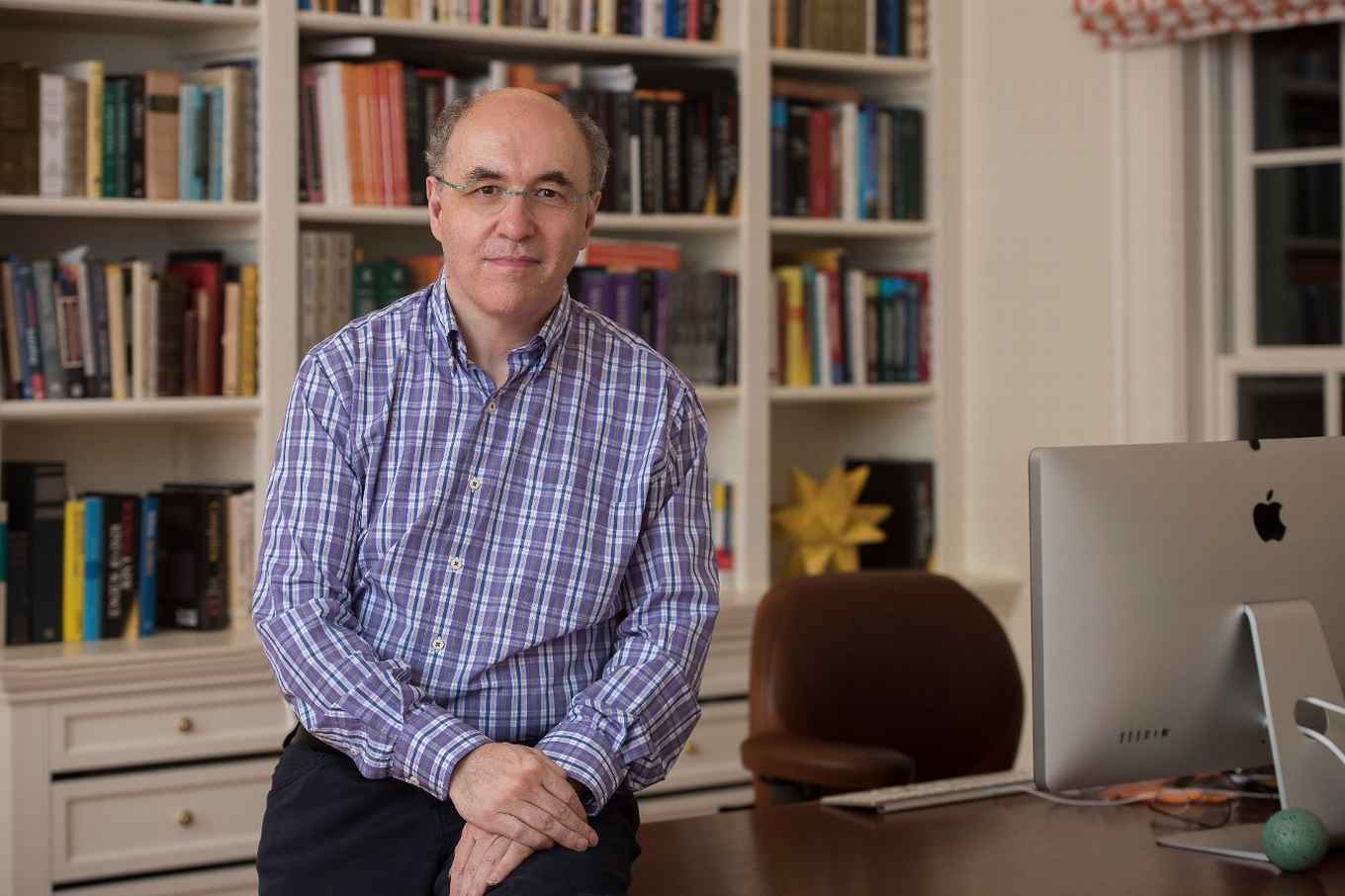Stephen Wolfram, master of the computational universe, in Science beyond the Horizon
16 November 2020

Beyond the Horizon. Stephen Wolfram, the distinguished computational scientist, mathematician and physicist delivered an inspiring first lecture in the Science beyond the Horizon series. This series is an initiative of the IAS and aims to introduce ground breaking and creative ideas and their intellectual authors to a wider audience.
So it was an extraordinary event when Stephen Wolfram the influential scientist and CEO of his very successful software company Wolfram Research, introduced his new book A project to find the fundamental theory of physics to a large albeit virtual audience. The hour long lecture by Wolfram was followed by an lively discussion with a diverse expert panel consisting of professors Sonja Smets (Logic and Philosophy, in particular epistemology), Klaas Landsman (Mathematical Physics, in particular foundational aspects), Max Welling (information Science, in particular machine learning), and Jan de Boer (Theoretical Physics, in particular string theory).
Wolfram’s mastermind. Stephen Wolfram is a remarkably gifted individual by most standards. He started studying physics at Oxford University at the age of 15, and got a PhD in theoretical Particle physics and cosmology from Caltech in 1980 at the age of 20. As recipient of a very well endowed Mac Arthur Fellowship he moved on to the Institute for Advanced Study in Princeton. His interest started shifting from physics per se to information science and computation. In 1986 he founded Wolfram Research and released the extremely powerful; symbolic manipulation programming platform called Mathematica, which is used by scientists, engineers and students worldwide. And indeed his strong connection to information, information processing and its many representations led basically to a profound change in his thinking about science as a whole. A fundamental shift of paradigm from the more conventional reductionist mathematical framework centered on calculus, algebra ad geometry, towards an information and algorithm centered evolutionary approach.
His computational universe. His 1992 book, A new kind of Science, a Bible-sized bestseller, entails the introduction of and extensive study of Cellular automata, their classification and great potential. What he basically discovered was that simple rule based programs/algorithms can upon many, many iterations generate diagrammatic patterns that are highly complex and non-trivial. Moreover, in contrast to the rules themselves the structures that emerge are highly irreducible in the sense that they exhibit a level of randomness that is very hard to directly assess by standard mathematical analysis. And in his new 2020 book or better, project, he claims that such structures do actually exhibit the universal features of all of fundamental physics, say, the principles of relativity, quantum theory, gauge symmetry and evolution. These would manifest themselves in certain well defined computational features of his complex graphs. One is the causal structure and invariance of the graph allowing to implement the basic principles of relativity. Applying the rules in all possible ways generates multiway graphs with a branchial structure that emulates quantum features like entanglement and path integrals. Finally one may introduce the notion of rulean graphs where starting from a given initial sequence many different rules are applied in parallel, to generate an all-overarching multiverse- or theory-of-everything-like framework.
Deep questions. What Wolfram kept emphasizing is the vast space of opportunities that his rule based computational universes offer to rethink the core of natural science, but that in order to successfully exploit them as a researcher you will have to change your mindset towards this algorithmic thinking. The panel discussion touched on vast domains deserving further scrutiny centered on for example falsifiability, on different notions of irreducible complexity, on potential new universal constants of nature, on meta-mathematics and how to explain the remarkable successes of reductionism in conventional science. I must say Stephen Wolfram succeeded in creating an inspiring -- not to say mind-boggling – experience, worth checking out on YouTube and his very well maintained website devoted to the project.
Sander Bais,
Em. Professor of Theoretical Physics
IAS